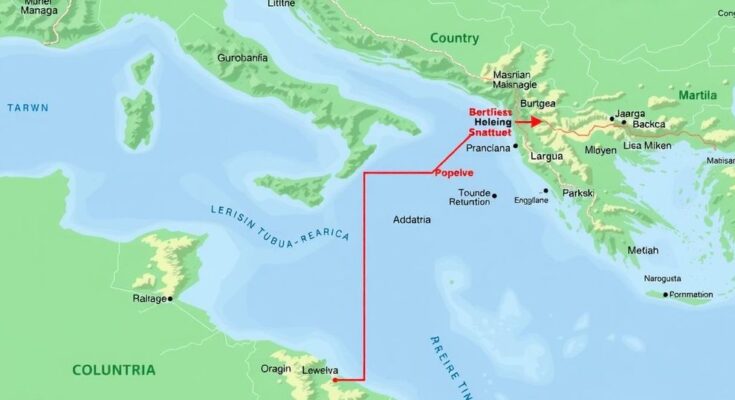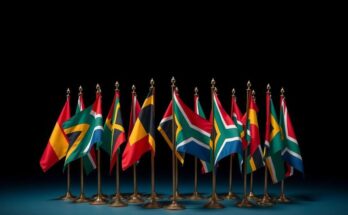Guyana has filed a Request for provisional measures at the ICJ concerning Venezuela’s planned elections in the Essequibo region. The request cites violations of sovereignty and urges the Court to prevent Venezuelan electoral activities. This dispute traces back to a 1899 Arbitral Award, with Venezuela contesting the ICJ’s jurisdiction during the ongoing proceedings.
On Thursday, Guyana formally submitted a Request for provisional measures to the International Court of Justice (ICJ) regarding its territorial dispute with Venezuela over the Essequibo region. This action follows Venezuela’s declaration to hold elections in the contested area on May 25, 2025. Guyana argues this electoral activity poses a threat to its sovereignty and violates a previous ICJ order designed to maintain the current status of the disputed territory.
In its request, Guyana emphasizes the urgent need for intervention, asserting that irreparable harm could result from Venezuela’s proposed electoral proceedings. The submission requests the ICJ to prevent Venezuela from engaging in any electoral activities in the Essequibo region, which Guyana considers illicit under international law.
Specifically, Guyana seeks the ICJ to implement measures to:
1. Prohibit Venezuela from conducting elections or related activities in the disputed territory, including the distribution of electoral materials and appointment of officials.
2. Prevent any actions aimed at annexing or incorporating the disputed region as part of Venezuela’s territory.
3. Maintain the existing governance structure in the Essequibo region controlled by Guyana.
This legal pursuit follows a prolonged dispute rooted in the 1899 Arbitral Award, which delineated the boundary between British Guiana and Venezuela. Guyana initially approached the ICJ in 2018, seeking clarity on the legitimacy of the 1899 Award and the status of the disputed area. Venezuela, however, has challenged the ICJ’s jurisdiction and has refrained from engaging in various proceedings.
In 2020, the ICJ affirmed its jurisdiction over the dispute, a ruling upheld in subsequent years despite Venezuela’s objections. The situation escalated following Venezuela’s December 2023 announcement of a “Consultative Referendum” proposing the establishment of a new state, “Guayana Esequiba,” including the contested territory. The ICJ’s December ruling urged both nations to restrain from exacerbating tensions, particularly actions conflicting with the established territorial status.
With this recent submission for provisional measures, Guyana is calling for immediate ICJ intervention to halt further Venezuelan actions. Although the ICJ has acknowledged Guyana’s filing, it has yet to provide a formal response. This situation represents a crucial juncture in one of Latin America’s enduring territorial disputes, with both countries maintaining divergent perspectives regarding the status of the Essequibo region.
In conclusion, Guyana’s formal Request for provisional measures with the ICJ signifies its commitment to protecting its sovereignty over the Essequibo region amidst ongoing tensions with Venezuela. The situation has escalated due to Venezuela’s announcement of elections in the contested territory and the prior ICJ directives aimed at preserving the status quo. The ICJ’s forthcoming response will be pivotal in determining the next steps in this long-standing territorial dispute between the two nations.
Original Source: newsroom.gy




